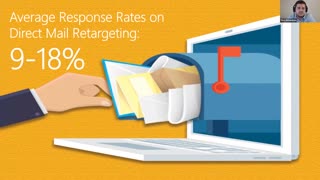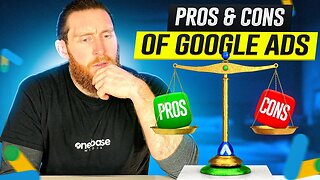166: The downsides of personalization
Personalization can be very useful, or very annoying
Let’s start with some of the geeky details.
In order to personalize, you need to have information about the person. That could be browsing history, demographics from some 3rd party source, purchase history, the e-newsletters the person gets, etc.
Technically, a web connection is anonymous. But through the magic of cookies, a website can remember who you are.
By the way, this whole thing about the death of cookies refers to third-party cookies. I’m talking about first-party cookies, which are not going away. Call me if you need more information on that.
You can manage this kind of data in a customer data platform, or CDP. If you’re curious about CDPs, please give me a call, but it’s not necessary to know about CDPs for today’s topic.
If a website has a CDP, or similar technology, the site knows who you are when you come back, even if you logged out after your last visit. Your browser still has a cookie that identifies you. You can delete the cookie, but most people don’t do that.
Just because the site doesn’t say “Hello Greg” doesn’t mean it doesn’t know it’s me.
That raises an interesting question. Is it wise to expose to the visitor that you know who he is? That could be considered helpful in some cases and creepy in others. A generic rule for that might be that the more the person feels like a member, the more it’s okay to show that you know who they are. Another way to put that might be that it’s more acceptable on a B2B site than on a B2C site.
But keep the creepy factor in mind.
The other day I read “The Risk of Personalization: do people want and trust it?” by Lars Jensen. It’s a good article with some interesting survey results, and I’ll post a link below.
Personalization comes in many different forms, and I don’t think we can make simple rules about whether people like it or not.
Spotify giving me music recommendations, or Amazon showing me similar products, are very different things than a news site only showing me articles that fit with my preconceptions. They’re both personalization, but one is helpful and the other isn’t.
One of the big things to consider about personalization is whether you’re helping the reader or you’re helping yourself. Not that there’s anything wrong with helping yourself. You’re running a business and you have to make money. But it’s a good question to ask to make sure you’re not going in a bad direction.
Personalization can be great for you and for your customer. But there’s a line. It’s not a very bright line. There seem to be a lot of factors to consider. Here are some things to keep in mind as you think about personalization on your site, or in your app.
Did you get consent?
Does the personalization feel intrusive?
Have you provided a clear explanation of how and why you’re personalizing your site?
Are you protecting your customer’s data, and have you explained that clearly?
Have you chosen a type of personalization that feels like manipulation?
Does your reader feel as if he’s falling into an echo chamber, where he only hears one side?
Could the personalization be embarrassing if somebody else saw it?
Links
The Risk of Personalization: do people want and trust it?
https://theaudiencers.com/decisions/the-risk-of-personalization-do-people-want-and-trust-it/
-
 3:48
3:48
The Krehbiel Group - Something I Learned Yesterday
6 months ago165: Get more granular with your user data
36 -
 4:23
4:23
The Krehbiel Group - Something I Learned Yesterday
6 months ago168: 4 ways publishers can use propensity models
28 -
 33:45
33:45
High Ticket Affiliate Marketer 2
3 years agoPinterest Marketing
18 -
 10:22
10:22
cosmicostudios
4 months ago5 Ways Your Website Design Affects Your Bottom Line 💰
31 -
 24:13
24:13
3D Mail Results
5 months agoHow to build the perfect mailing list for your direct mail campaign
1 -
 18:54
18:54
cosmicostudios
3 months ago5 Ways Minimalist Web Design Boosts Sales ☯️
21 -
 8:53
8:53
One Base Media
5 months agoGoogle Local Marketing Strategies | Dominate Google in 2024
18 -
 0:59
0:59
WFH University
6 months agoAI in Social Media: Personalization and Content Moderation"
57 -
 4:38
4:38
iQMarketers
6 months agoAre You Paying 800% Too Much for Ads?
216 -
 8:44
8:44
One Base Media
5 months agoIs Google Ads Worth It? Pros & Cons Of Google Ads
7